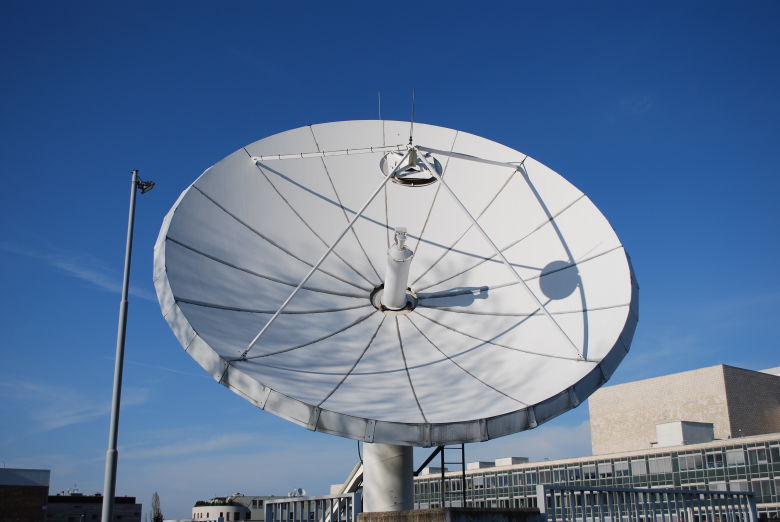Cable Ops, CCA Team for C-Band Proposal

Smaller cable operators (ACA Connects), competitive carriers and computer companies (the Competitive Carriers Association), have joined with Charter to offer up their own proposal for clearing a bunch--370 MHz at least--of C-Band midband satellite spectrum ((3.7-4.2 GHz) ) for advanced terrestrial wireless.
That came in a joint filing at the FCC, which has voted to free up the spectrum, used by broadcasters as well as cable operators for program delivery, but has not decided how and how much. It has been getting help, including from the C-Band Alliance, which has its own proposal to clear 200 MHz of spectrum based on a marketplace, rather than FCC, auction, and Rep. Doris Matsui (D-Calif.) who has offered up a legislative solution that would include an FCC auction.
Related: CGAW Says Auction is Way to Go
NCTA-The Internet & Television Association (Charter is a member) was not part of the filing and had no comment.
For cable (wearing its traditional service hat) and broadcasters (TV and radio), the particularly attractive part of the plan would be the proposal that they get compensated beyond just the cost of relocation.
Not only does the proposal fund "future proof assets for their transition, including "fiber construction in some cases [as an alternative to satellite spectrum] and Indefeasible Rights of Use" in others, but "certain additional payments to satellite operators and users, either determined by the Commission and imposed as conditions on the new licensees, or determined by the market in an incentive auction."
ACA Connects has been arguing that satellite users, not just the providers--all international satellite companies--should get a cut of the proceeds and the FCC sought comment on what remunerable rights in the spectrum those cable and broadcast users might have that the FCC could compensate them for, it it went in that direction.
The smarter way to stay on top of broadcasting and cable industry. Sign up below
Related: FCC Seeks More Input on Compensating C-Band Incumbents
Cable operators have a rooting interest in 5G as prospective providers, but also in protecting the satellite spectrum.
Broadcasters and cable operators receive network programming via that C-band spectrum, as well as using it to get remote content, like breaking news, back to the station or new net, and could face dislocation and potential interference from new terrestrial users and a repack process.
The FCC has a rooting interest in freeing up as much of that spectrum as possible, so the 370 MHZ, as opposed to the 200 MHz some have proposed--could be attractive.
The proposal:
· "Frees up at least 370 megahertz (and likely more) of the C-band spectrum on a nationwide basis and on an expedited timeframe, ensuring fast and widespread deployment of 5G, including to smaller communities and rural areas;
· "Makes whole all incumbents — including the satellite industry, its customers, and earth station users — and provides all of these stakeholders with long-term certain protection for existing services;
· "Contributes to the goal of building fiber to provide high-speed broadband in unserved or underserved rural areas;
· "Ensures a transparent FCC-led auction that will ensure the public receives all spectrum sale proceeds (expected to be in the billions) beyond what is required to reimburse costs and incentivize current users; and
· "Creates 100,000 “direct” jobs and as many as another 100,000 “indirect” jobs in communities across the country."
“This proposal ensures that all Americans will benefit from re-farming of the C-band spectrum," said ACA Connects president Matthew Polka. "The plan is fast, fair, and fruitful: financially and otherwise."
“Today’s joint filing is significant progress and demonstrates industry’s willingness to work together to ensure the repurposing of the C-Band spectrum is done right," said CCA president Steven Berry.
“The industry proposal for a public auction of C-band should be welcomed by the FCC since, unlike CBA’s proposal for a private auction, it is within the Commission’s legal authority and could result in a more transparent and fair auction process," said Michael Calabrese, director of the Wireless Future Program at the Open Technology Institute. "Requiring winning bidders to compensate incumbent users for the cost of clearing the lower portion of the band, as the cable industry proposes, is entirely consistent with FCC precedent and the Communications Act, whereas a private auction windfall to foreign satellite operators surely is not.”
Contributing editor John Eggerton has been an editor and/or writer on media regulation, legislation and policy for over four decades, including covering the FCC, FTC, Congress, the major media trade associations, and the federal courts. In addition to Multichannel News and Broadcasting + Cable, his work has appeared in Radio World, TV Technology, TV Fax, This Week in Consumer Electronics, Variety and the Encyclopedia Britannica.

